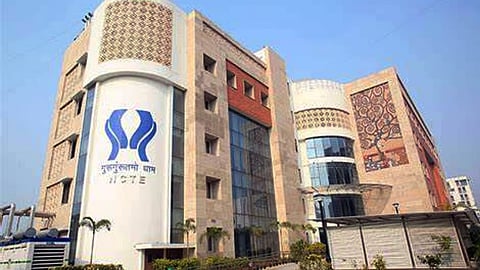

The National Council for Teacher Education (NCTE) has derecognised 2,962 Teacher Education Institutions (TEIs) across India for failing to submit their online Performance Appraisal Reports (PARs) for the academic years 2021–22 and 2022–23, despite being issued show-cause notices in March and April, reported Hindustan Times.
As a result, these institutions will not be permitted to admit new students for the 2025–26 academic session. However, students already enrolled in the 2024–25 session will be allowed to complete their programmes.
NCTE, the statutory body responsible for maintaining standards in teacher education, had made PAR submission mandatory in September 2019 to ensure that recognised institutions adhere to its norms, standards, and guidelines. As part of this process, institutions are required to submit a range of documents, including details of qualified faculty, financial statements, and geo-tagged images and documents.
After extending the submission deadline twice, NCTE set December 30, 2024, as the final date for compliance.
In February 2025, a five-member expert committee, led by Harish Chandra Singh Rathore of the NCTE’s Northern Regional Committee, was formed to review non-compliance and recommend appropriate actions.
Following this, show-cause notices were issued in March and April, and in April and May, NCTE began notifying defaulter institutions about the withdrawal of recognition.
“These colleges did not submit their PARs despite being given a two-time extension and did not reply to show-cause notices. If we find that more TEIs are violating our rules and regulations, we will also take action against them in the future. We want to ensure quality of education in TEIs in line with National Education Policy (NEP) 2020 provisions,” told Rathore.
According to the notices, the derecognition has been carried out under Section 17 of the NCTE Act, 1993, effective from the academic year 2025–26.
This section empowers regional committees to withdraw recognition from TEIs that violate NCTE norms, which can result in discontinuation of courses, cancellation of affiliations, invalidation of qualifications for employment, and prohibition from admitting students without formal recognition.
Among the four NCTE regions, the Northern region has seen the highest number of derecognised institutions at 1,225 (41.36%), followed by the Southern region with 960 (32.41%), the Western region with 748 (25.25%), and the Eastern region with just 29 (0.98%), according to official data on the NCTE website.
Uttar Pradesh has emerged as the most affected state in the Northern region, with 1,059 Teacher Education Institutions (TEIs) derecognised; accounting for 86% of the region’s total and over 37% of the nationwide figure.
In the Southern region, Tamil Nadu (361) and Karnataka (224) reported the highest numbers of derecognised institutions. Maharashtra leads the Western region with 571 TEIs losing recognition, significantly outnumbering Gujarat and Rajasthan, which saw 63 each.
In the Eastern region, West Bengal topped the list with 18 derecognised institutions.
Reacting to the development, Rakesh Mani Tripathi, Principal of the derecognised Dr Ram Prasanna Maniram Singh Mahavidyalaya in Ayodhya, said, “We have been running the Bachelor of Education (BEd) course since 2002. This is the first time that our college has been derecognised by NCTE. We could not fill PAR on time. We are discussing with our academic staff on ways to appeal the NCTE order.”
Shad Khan, manager of Choudhary Bashir Khan Mahavidyalaya, Meerut, added, “We have been running BEd course since 2016-17, but NCTE has derecognised our college this year. The management committee of the college is deliberating on the future course of action to appeal against the NCTE order.”
As per NCTE guidelines, institutions dissatisfied with the derecognition can file an appeal under Section 18 of the NCTE Act, 1993, through the online portal within 60 days of the notice. The section provides for aggrieved parties to challenge NCTE’s decisions within a specified time frame.
“The aggrieved persons of derecognised TEIs can present their documents in front of the appeal committee functioning under various regional committees of NCTE. The appeal committee will review their documents and take decisions accordingly,” said Harish Chandra Singh Rathore, head of the Northern Regional Committee.
According to the latest figures on the NCTE website, India currently has 20,454 recognised TEIs. Of these, the Northern region holds the largest share, with 8,120 institutions, followed by the Western region (4,928), the Southern region (4,757), and the Eastern region (2,649).
“The aggrieved persons of derecognised TEIs can present their documents in front of the appeal committee functioning under various regional committees of NCTE. The appeal committee will review their documents and make decisions accordingly,” Rathore said.
As per the latest data available on the NCTE website, India has a total of 20,454 recognised TEIs, with the highest concentration in the Northern Region (8,120 TEIs), followed by the Western Region (4,928), Southern Region (4,757), and Eastern Region (2,649).
